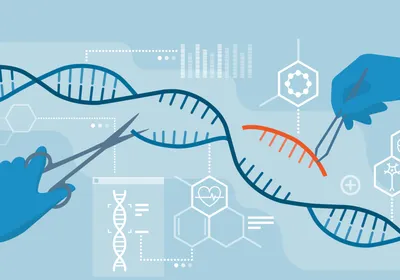ABOVE: The miSHERLOCK device glows brightly if a saliva sample contains SARS-CoV-2 RNA.
WYSS INSTITUTE AT HARVARD UNIVERSITY
Since the start of the COVID-19 pandemic, researchers have been striving to develop low-cost tests to detect the presence of SARS-CoV-2 in patient samples. Now, a team of researchers based at Harvard University’s Wyss Institute and MIT have unveiled a quick and inexpensive testing platform capable of distinguishing between major SARS-CoV-2 variants, according to a paper published Friday (August 6) in Science Advances.
The platform, called miSHERLOCK (pronounced “my-sherlock”), is fully self-contained from sample preparation to test readout. It requires no external equipment or instruments, and is eventually meant to be constructed by the user from 3-D printable parts and battery-powered electronics. The team was led by biomedical engineer James Collins, who is also cofounder and director of Sherlock Biosciences, a firm built around the CRISPR-based diagnostic tool called SHERLOCK which the ...





















